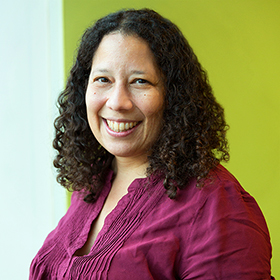Executive Summary
When used strategically, endowment funding can be a powerful grantmaking tool that not only can address longstanding racial inequities but can also represent a direct transfer of power. By helping to secure a nonprofit’s financial future, an endowment can put it on the path to liberation, demonstrate trust, and give an organization the freedom to dream its biggest dreams.
Yet, endowment giving remains relatively rare among foundations and represents a small fraction of foundation giving, according to research from the Center for Effective Philanthropy.
Download the Case Study
To read the entire case study, please use this form link to download a PDF copy.Bucking that trend, in 2022 the Robert Wood Johnson Foundation (RWJF) launched its renewed endowment grantmaking strategy by giving endowment grants of $5 million each to three racial justice organizations led by people of color: UnidosUS, NAACP, and Faith in Action (FIA).
“If we truly believe in racial equity,” says RWJF President and CEO Richard Besser, “why would we not want to ensure the long-term financial stability of organizations that are so directly committed to racial equity and racial justice? We see contributing to endowments as one of the ways to help do that.”
This case study provides an overview of RWJF’s approach to nonprofit endowment grantmaking and explores how philanthropy can use endowment funding for equitable social change.1
 RWJF’s mission is to develop a Culture of Health rooted in equity that provides every individual with a fair and just opportunity to thrive. The foundation’s strategy is to confront structural racism to transform health. (Photo: iStock/Jacob Wackerhausen)
RWJF’s mission is to develop a Culture of Health rooted in equity that provides every individual with a fair and just opportunity to thrive. The foundation’s strategy is to confront structural racism to transform health. (Photo: iStock/Jacob Wackerhausen)
Central to RWJF’s approach was the creation of an internal working group with members from the program, finance, and legal teams. Over the course of a year, the group conducted extensive research, learning, and thinking on endowment grants; held conversations with grantees, equity champions, and finance and investment professionals with endowment experience; and engaged its board. The case study explores that work in detail. While RWJF offers just one approach to endowment grantmaking, its experience can provide learnings for philanthropists, foundations, and other funders who seek to better understand what the path might look like.
It also must be said that endowment funding does not replace other types of funding you might already be providing to nonprofits. While such funding can be transformational for grantees, it may not be appropriate for every situation. Instead, endowment funding should be seen as an additional tool in your grantmaking toolkit to complement other grant types, each of which is used for a different strategic need.
Based on our discussions with experts in the field, here are ways that philanthropy can unlock the potential of endowment funding:
Embrace New Mental Models About Nonprofit Endowments
- Endowments can prepare nonprofits to address new societal challenges and meet the ever-changing needs of the communities they serve.
- Endowments allow organizations to think beyond survival and have the space to set ambitious goals.
- Endowed organizations will still need funding.
Understand Where Grantees Are in Their Endowment Journeys
Nonprofit organizations are at different levels of endowment readiness, depending on their current financial situations and familiarity with endowments. Typically, they can fit into one of three broad categories: grantees with a limited understanding of endowments, grantees that are getting ready to launch their endowments, and grantees that have already established their endowments. RWJF had the capacity and expertise to support organizations in the latter two categories. Yet, there is an opportunity for funders, and others with the capacity, to provide values-aligned financial guidance to nonprofit organizations that are unfamiliar with endowments and other tools for securing financial stability and growth. This is especially critical to organizations led by leaders of color, which typically have smaller revenues and fewer unrestricted net assets than their white-led counterparts. Such chronic under-resourcing can also limit access to asset managers, financial advice, and knowledge.
Endowments Offer Funders Creative Ways to Advance Equity and Justice
Because endowment giving is underutilized, the opportunity is great. Consider the potential impact of the very investments that nonprofits can make through their endowments, which can take many forms, from local community and economic impact investments to socially responsible investments that consider environmental, social, and governance (ESG) factors. UnidosUS, for instance, invests a portion of their endowment in Latino-owned businesses. These investments provide another opportunity for nonprofit organizations to achieve their mission and live up to their values.
“I don’t want to be hyperbolic, but I think the impact [of endowment funding] is arguably limitless So many nonprofits, social justice organizations—specifically Black-led social justice organizations—have been hampered by constrained resources for so very long. … This ability to have financial resources that support the kind of strategic decision making for an organization, for the leadership, for the stakeholders at large, is imperative.”





